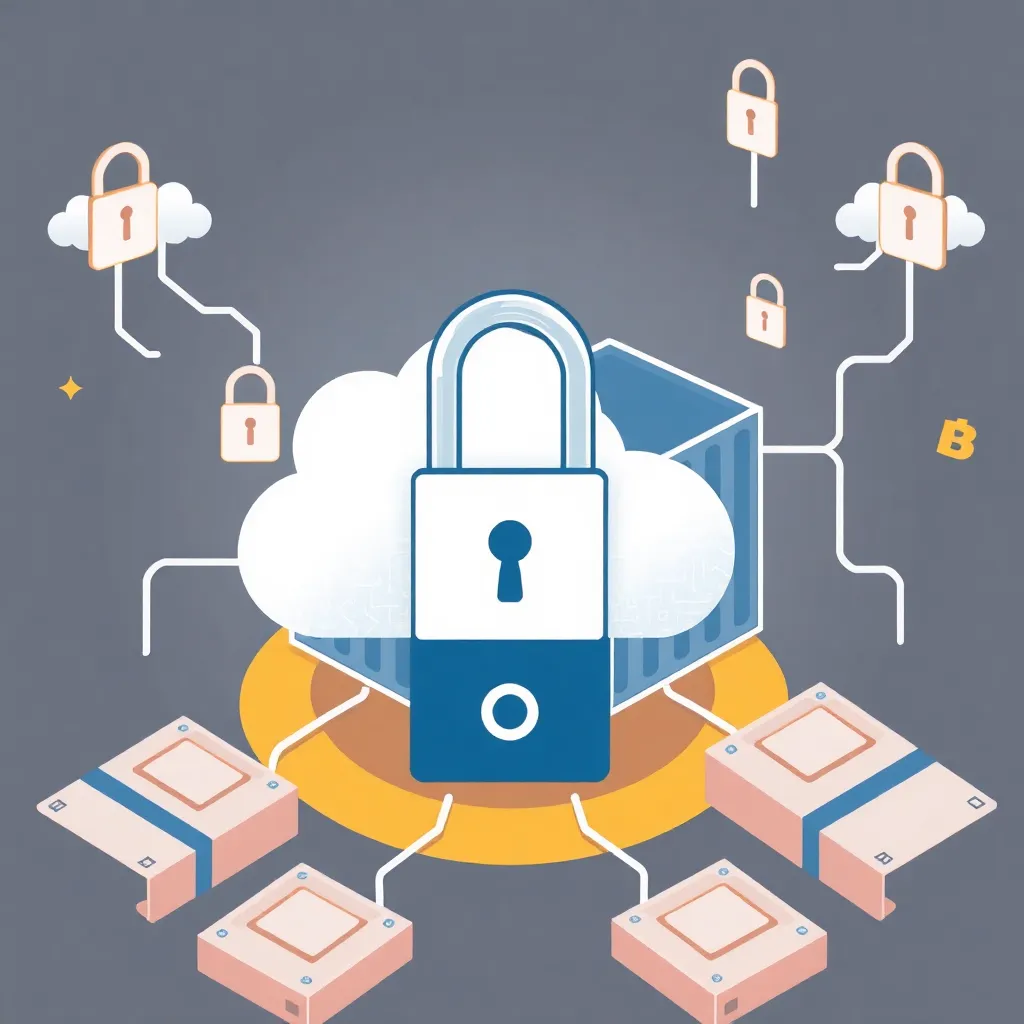Cybersecurity for Startups: Protecting Your Online Presence

In today's digital age, having a strong online presence is vital for startups to reach their target audience, build brand awareness, and drive sales. A website, social media, and other digital platforms serve as the face of your business, allowing customers to interact with your brand and access important information. However, with the increasing number of cyberattacks and data breaches, startups must prioritize cybersecurity to protect their online presence from potential threats.
Cybersecurity is no longer a concern reserved for large corporations; startups are equally vulnerable to attacks. In fact, according to a report by Herjavec Group, 50% of small businesses experienced a cyberattack in 2020. The consequences of a breach can be devastating, resulting in financial loss, reputational damage, and legal liabilities.
Startups often have limited resources, making it challenging to allocate budget and personnel to cybersecurity. However, neglecting cybersecurity can have long-term consequences that far outweigh the short-term costs of implementing security measures. By prioritizing cybersecurity, startups can protect their business, customers, and reputation, ultimately ensuring long-term success.
Understanding the Risks
Startups are particularly vulnerable to cyberattacks due to limited resources, lack of expertise, and the pressure to quickly launch products or services. This vulnerability is further exacerbated by the fact that many startups often prioritize speed over security, leaving them open to attacks.
Cybercriminals often target startups, seeking to exploit weaknesses in their systems and gain access to sensitive data. According to a report by CB Insights, cybersecurity is one of the top concerns for startups, with 71% of startup founders citing it as a major worry.
The consequences of a cyberattack on a startup can be devastating, leading to financial losses, damage to reputation, and even legal liability. Moreover, startups often lack the resources to invest in robust cybersecurity measures, making them an attractive target for cybercriminals.
It is essential for startups to prioritize cybersecurity from the outset, investing in measures such as encryption, firewalls, and secure coding practices to protect themselves from potential threats. By doing so, startups can minimize the risk of a cyberattack and ensure the security of their sensitive data.

Implementing Basic Security Measures
In today's digital landscape, cybersecurity is a critical aspect of protecting your startup from potential threats. One of the most fundamental security measures is the use of strong passwords. According to the National Institute of Standards and Technology (NIST), a strong password should be at least 12 characters long and include a mix of uppercase and lowercase letters, numbers, and special characters. NIST guidelines also recommend avoiding common words, phrases, and personal information.
Two-factor authentication (2FA) is another essential security measure that adds an extra layer of protection to your startup's digital assets. 2FA requires users to provide a second form of verification, such as a code sent to their phone or a biometric scan, in addition to their password. This makes it much more difficult for hackers to gain unauthorized access to your systems.
Regular software updates are also crucial in preventing cyber attacks. Many software updates include security patches that fix known vulnerabilities, which can be exploited by hackers if left unpatched. By keeping your software up to date, you can significantly reduce the risk of a cyber attack.
Finally, it's essential to educate your team on the importance of cybersecurity and best practices to prevent phishing and social engineering attacks. Phishing attacks, in particular, are becoming increasingly sophisticated, and it's crucial that your team can identify and report suspicious emails or messages. By implementing these basic security measures, you can significantly reduce the risk of a cyber attack and protect your startup's sensitive data.
Data Encryption and Backup
Data encryption is a crucial aspect of protecting sensitive information from unauthorized access. By encrypting data both in transit and at rest, organizations can ensure that even if their data is intercepted or stolen, it will be unreadable to anyone without the decryption key. This is especially important for sensitive data such as financial information, personal identifiable information, and confidential business data.
Regular backups are also essential for maintaining business continuity in the event of a breach or system failure. By having a recent backup of critical data, organizations can quickly restore their systems and data in the event of a disaster, minimizing downtime and reducing the risk of data loss. This is particularly important for organizations that rely heavily on their data and systems to operate, such as e-commerce sites or financial institutions.
According to the IBM Cost of a Data Breach Report, the average cost of a data breach is around $3.92 million. By implementing robust encryption and backup strategies, organizations can significantly reduce the risk of a breach and minimize the financial impact if a breach does occur.

Network Security and Incident Response
A robust network security strategy is crucial in today's digital landscape, where cyber threats are becoming increasingly sophisticated. Implementing firewalls, intrusion detection systems, and secure protocols for data transmission can help prevent unauthorized access to your network and protect sensitive data from being compromised. Firewalls act as a barrier between your network and the internet, controlling incoming and outgoing traffic based on predetermined security rules. Intrusion detection systems, on the other hand, monitor network traffic for signs of unauthorized access or malicious activity, alerting security teams to potential threats.
Secure protocols for data transmission, such as HTTPS and SFTP, ensure that data is encrypted during transmission, making it difficult for hackers to intercept and read sensitive information. Additionally, implementing secure authentication and authorization mechanisms, such as multi-factor authentication and role-based access control, can help prevent unauthorized access to your network and data.
However, even with a robust network security strategy in place, security breaches can still occur. This is why it's essential to develop an incident response plan to quickly respond to and contain security breaches, minimizing the impact on your business. An incident response plan should outline the steps to be taken in the event of a security breach, including identifying the breach, containing the damage, eradicating the threat, recovering from the breach, and conducting a post-incident analysis to identify areas for improvement.
According to the National Institute of Standards and Technology (NIST), a comprehensive incident response plan should include procedures for incident response, incident containment, incident eradication, incident recovery, and post-incident activities. By having a well-planned incident response strategy in place, you can reduce the risk of financial loss, reputational damage, and legal liability in the event of a security breach. For more information on incident response planning, visit the NIST website at https://nvlpubs.nist.gov/nistpubs/SpecialPublications/NIST.SP.800-61r2.pdf.
Conclusion: Prioritizing Cybersecurity in Your Startup
Cybersecurity is indeed a vital component of any startup's online presence, as it directly impacts the trust and confidence of customers, investors, and partners. According to a report by Herjavec Group, the average cost of a cyberattack on a business is around $200,000, which can be devastating for startups with limited resources. By acknowledging the risks and taking proactive measures, startups can minimize the likelihood of a successful attack and ensure business continuity.
Implementing basic security measures is a crucial step in safeguarding a startup's online presence. This includes using strong passwords, keeping software up-to-date, and installing reputable antivirus software. Additionally, startups should prioritize data encryption, backup, and network security to prevent unauthorized access and data breaches. By doing so, they can protect sensitive information and maintain the trust of their customers and stakeholders.
Moreover, startups should recognize that cybersecurity is an ongoing process that requires continuous monitoring and improvement. As the threat landscape evolves, startups must stay informed about emerging risks and adapt their security strategies accordingly. By prioritizing cybersecurity, startups can create a secure foundation for growth and success, ultimately driving business value and competitiveness in their respective markets.